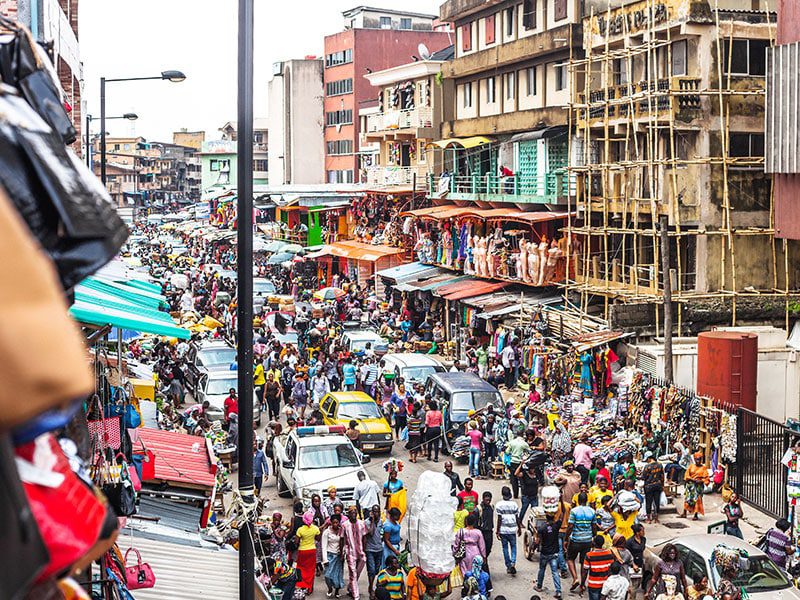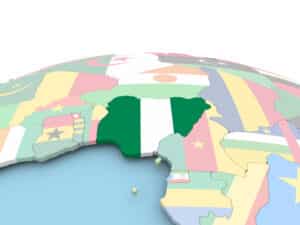Investing options for Nigerian expats part 1 – that will be the topic of today’s article.
Nothing written here should be considered as financial advice, nor a solicitation to invest.
For any questions, or if you are looking to invest as an expat, you can contact me using this form, or via advice@adamfayed.com
Table of Contents
Introduction
Nigeria is the most populous country on the African continent and the engine of the earth. It is diverse both culturally and economically and is home to the offices of countless major corporations. However, for all Nigeria’s audacity, the gap between the rich and the poor is incredible.
In 128th place this year (out of 149 countries) was Nigeria. This puts Nigeria in the bottom 15%, and its rankings in safety (145th), health (142nd), and economic quality (131st) are partly responsible for its poor placement. Nigeria’s best result was 47 in social capital, a category that takes into account social norms, personal relationships, and civic participation.
Africa’s powerhouse, is Nigeria really as hopeless as the prosperity index suggests, or is there more to the country than meets the eye?

Economy of Nigeria
Nigeria has a middle income, mixed economy, and emerging market. In terms of GDP, it ranks 21st in the world and is the financial capital of Africa. Since 2014, Nigeria has seen huge financial growth and this is due to the influx of activity in the telecommunications, banking, and film industry. Many Nigerian expats are returning from their lives abroad to capitalize on the strongest economy of any African country.
Currency of Nigeria
The official currency of Nigeria is the Nigerian Naira (NGN). One naira is subdivided into 100 kobos. There are eight naira notes divided into denominations of 1000, 500, 200, 100, 50, 20, 10, and 5 NGN. Coins 1 and 2 NGN and 50 kobos.
Housing in Nigeria for expats
Securing property as an expat in Nigeria can be a daunting task. Demand far exceeds supply, and there is very little to satisfy those who demand Western standards. For this reason, the cost of renting one of the “prettier” properties is often beyond the budget of most professionals.
Emigrants who have been displaced by an employer are often the most settled emigrants in Nigeria. This is because most companies provide suitable homes for their employees and cover rent and any leasing logistics. In some parts of Nigeria, companies actually own real estate or apartment complexes specifically for expatriate personnel.
If you are moving to Nigeria for work, make sure your contract includes accommodation. This is standard practice for most companies. If the property wasn’t secured when you arrived, you may find yourself in a hotel for a week or two next to your new job.
If you do not have a resettlement package because you are not moving to Nigeria for work, another option is to sublet an apartment from a friend. If you don’t have a place to live or an immediate job, many advise against moving to Nigeria.
Healthcare for expats in Nigeria
One thing that worries expats living in Nigeria is the lack of quality health care. There are the usual hospitals, pharmacies, and clinics that you would expect in the cities and towns of such a country, but conditions are poor and staff are often overwhelmed and undertrained. For this reason, diseases such as cholera, tetanus, and polio are still widespread despite Nigeria being considered a developed country.
Typically, expats in Nigeria use the services of private clinics and hospitals located in large cities. However, even they lack the quality of their Western counterparts. Scheduled examinations and minor problems are easily solved in these institutions. However, more complex medical problems are more difficult to diagnose due to outdated equipment and staff inexperienced in specialized fields. Therefore, many expats actually visit the house if they need a specialist doctor.
Education for foreigners in Nigeria
The vast majority of Nigerian children suffer from poor learning conditions and lack of staff, resulting in overcrowded classrooms. Some schools lack basic necessities such as running water and electricity. Problems lie at the heart of federal, state, and local governments as the responsibility for education is shared among them. This leads to a conflict of opinion and little is achieved.
Initially, many Nigerian schools were in the hands of missionaries, who gave children excellent education and fantastic conditions that were not inferior to the rest of the world at that time. Lost Nigerian parents wish it could be restored.
It is clear that the vast majority of immigrant children attend international schools, while the rest are educated at home. International schools are usually located in Lagos, Ibadan, Enugu, and other cities and major cities. The average cost per year tends to be around $30,000 which is £22,433.
Transportation cost in Nigeria

Getting from point A to point B in Nigeria can be tricky if you are not a local. The roads are chaotic and local drivers have their own rules to follow. Although it is relatively inexpensive to buy a car, it is highly recommended that expats stay off the road. However, since public transport is best avoided due to security concerns, what options are there for expats?
For expats who live close enough to their jobs and local attractions, they often rely on walking or cycling. However, given that the vast majority of expats in Nigeria have been displaced by their companies, most packages include a car and driver. Some even come with security and the bill is paid by the business.
Jobs in Nigeria for expats
Nigeria’s largest source of income is oil, and the country has the headquarters of multinational companies. There are also many opportunities for expats in mining, construction, IT, telecommunications, and general business.
Most of the expats who end up working in Nigeria tend to be highly skilled and experienced individuals. Jobs are often for project management, certified public accountant, human resources, business development, engineering, or IT management.
The salary of expats in Nigeria can be up to 45% higher than what they receive at home. This should cover the higher rental prices and safety factors associated with working in an African country. However, some expats packages also include free or subsidized accommodation and chauffeur-driven transportation.
Later we will discover the different options of investments for those expats who live in Nigeria and are seeking for ways to properly invest their money and reach financial goals.
Investing options for Nigerian expats
Expat investments are very different from the options normally available to non-expats and Nigeria residents in particular. Likewise, some of the more traditional investment options are not available to non-residents and expats living outside the country.
Understanding all the investment options available to expats can be tricky and confusing, meaning it’s important to get independent advice from a qualified advisor if you’re not sure how best to proceed. Many expats choose a combination of investment products, often managed by a financial advisor or wealth manager.
Those who are not into the topic of investment are sure that it is worth making an investment if they have a really big amount of money. Since they do not those big amounts, they are not even interested in this investing. But they should know, that there are really many investment options that do not require higher amounts. Consider how you can profitably invest even small amounts, what myths confuse novice investors. Let’s now discuss some of the options you can use as an expat in Nigeria.
Pained by financial indecision? Want to invest with Adam?

Adam is an internationally recognised author on financial matters, with over 368.7 million answers views on Quora.com and a widely sold book on Amazon



